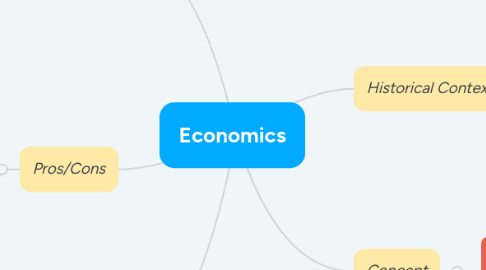Economics
by HECTOR GONZALO ROMERO SANTIN

1. Historical Context
1.1. Humans are self-interested beings. This idea assumes that every individual makes decisions designed to maximize their personal well-being. They choose the option that offers the greatest utility, with the least effort. This idea was first expounded by Adam Smith in 1776 in his work "The wealth of nations."
1.2. Smiths central belief was that human economic interaction is governed mainly by self-interest.
1.3. Smiths idea was developed in the 19th century by John Stuart Mill. Mill believed people wanted to possess wealth not only money, individuals were motivated by the will to achieve the greatest well-being possible.
2. Concept
2.1. Most economic models are underpinned by the assumption that people. are self- interested beings. This is known as homo economicus or "economic man."
3. Rationality: Costs and benefits
3.1. People make all kind of all kind of social decisions based on costs and benefits. Actions are rationals when ther are taken as a result of a sober calcularion of costs and benefits in relation to reaching a goal.
3.2. The theory falters when they are conflicting long and short term goals
3.3. It is refered to as rational choice theory.
4. Pros/Cons
4.1. There are many pros and cons but mainly pros, economics are realistic. Many people may find irretional some economic goals. The world is too complex too collect and analize all the relevant facts needed to calculate costs and benefits, that may be something negative bur still they are relliable.
4.2. It allow us to understand how people behave and many other important factors. But it may be conflicting at some point. It is usefull analizing actions of profit-maximizing firms.
5. Do we agree?
5.1. We do think that the theory of Adam Smith of the economic man is pretty much how many people behave, however we also think that this same people have values like empathy or kindness and sometimes they do consider what their actions can or can't do.


